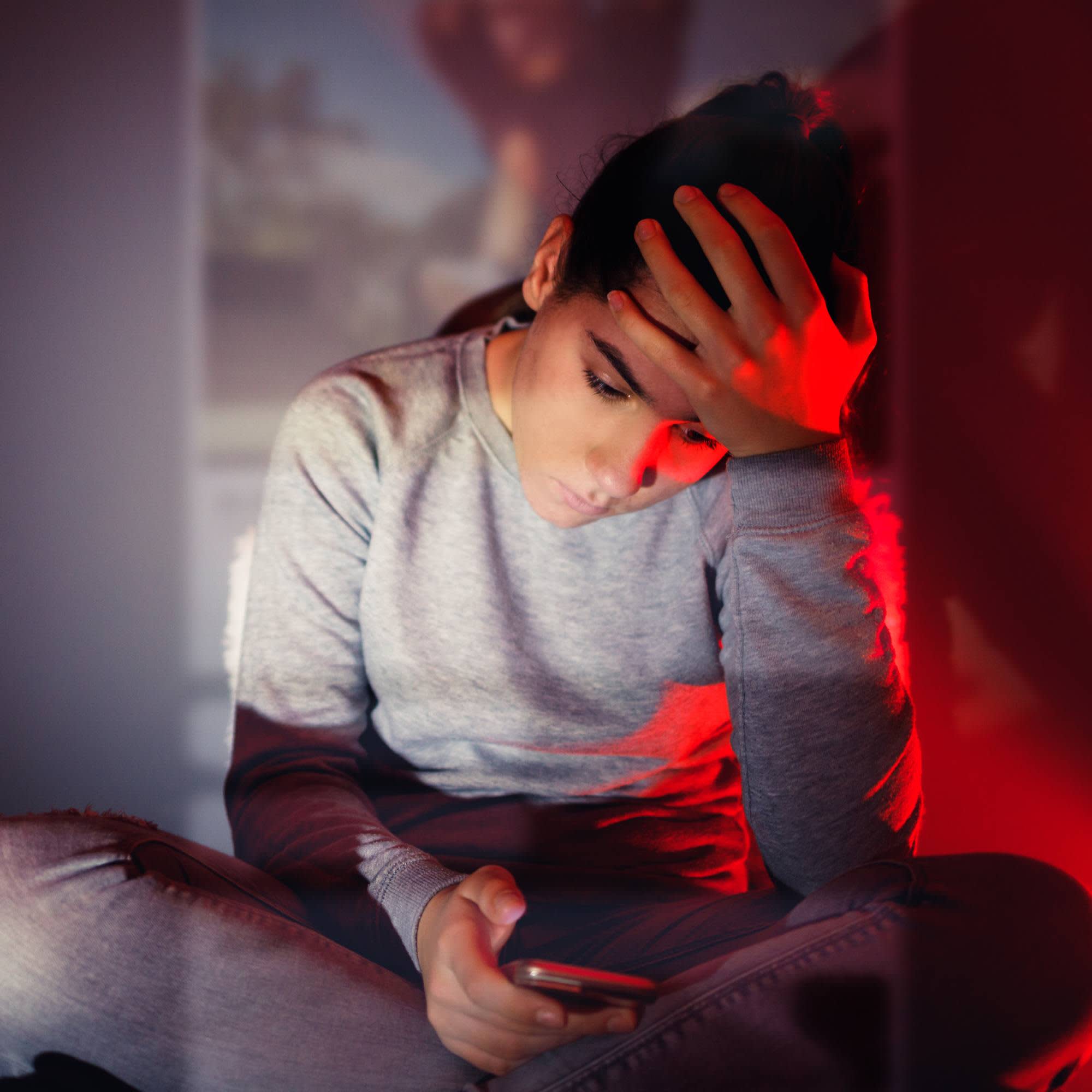
- POPSUGAR Australia
- Living
- What is the Difference Between Anxiety and Intuition?
What is the Difference Between Anxiety and Intuition?

Chances are, you’ve been in a situation where someone has told you to “trust your gut”.
Friends have often prompted me to do this when I have to make a difficult decision as I too have offered to others. I get the sense it’s a term that is sometimes thrown around casually, when in actual fact there is real power behind it that is actually rooted in science.
Trusting your gut means tuning to your intuition; the inner voice that we were born with, which is consistently inundated with external forces. Our intuition can be clouded with fear and sometimes feels like a gurgling around in our stomach, pushing our thought process in a certain direction. It’s for this reason that we need to separate the two as very different things, remembering that fear (if we allow it), is the ultimate, underlying thing that holds us back.
“Is this anxiety telling me not to do something because I am too afraid to commit to the consequences? Or is it my intuition quietly steering me in the right direction?,” is a thought I often have.
I spoke to the delightful Jerico Mandybur; intuitive tarot reader, meditation teacher, and writer, who teaches women how to unlock their intuitive creative expression. Jerico explained the difference: “While fear tends to come from catastrophising and can feel ‘scary’ or ‘loud’, our intuition tends to come to us as a whisper. Meaning, we need to get still and reflective to hear it most of the time. Our intuition or gut feelings, to me, are often a form of higher logic; a trusting “yes” as opposed to a constrictive no.”
Anxiety and intuition are completely different states of body and mind and we should be able to distinguish the two. Jerico went on to list some of the bodily sensations we might feel when experiencing fear and intuition. “We all know what fear feels like—restricted, shallow or sped up breathing, trembling, biting nails, headaches, feeling distracted, etc. Intuition feels like a full-body ‘yes’ that’s still scary, but not dreadful—kind of like when you’re about to go on a roller coaster: you’re terrified but you really want to do it and you know you’ll feel so proud when you do!”
Intuition is the gut feeling that gives us the ability to make decisions without needing to rely on reasoning or deliberation; it isn’t magic but rather shaped by our past experiences – stored as memory and knowledge in our brain. Intuition then connects us with nerve fibres in our body and gives us the fluttery gut feeling.
Jerico reassures me that feeling anxious is normal.
“Our brains have evolved to neurosept for danger, so any kind of change will likely be perceived as a potential risk. So I like to remind people that expecting themselves to get rid of fear is another form of being too hard on ourselves. Instead, try to remember that there is no courage without fear. Our anxiousness doesn’t need to be fixed; it can be a cue to dive deeper and explore the question ‘What do I really truly believe? What would I tell a friend?’ as a way to remember your truth. And intuition is simply that process! Sensing and deeply knowing—rather than just ‘thinking’.”
I think this is such a beautiful way of learning how to connect with our inner voice, and the desires we hold for ourselves!
I’ve certainly experienced how fear can have an elusive way of masking itself. In 2021, I decided to leave my career of ten years. I had known for some time my resolution to quit the comfort of being a publicist to pursue my dreams of being a writer was looming, and I would have to take action sometime in the very near future but I kept allowing myself to get distracted from choosing a path. I was always too busy. I was experiencing anxiety and intuition in unison; knowing that taking a different direction was the right one – yet I was SO afraid to leave all that I knew behind. Who would I be if I wasn’t a publicist? Would people look at me the same way? Would I make enough money in my next role? Would I be successful? Would I miss it? These questions remain unanswered being stuck in limbo. So I jumped. I trusted myself even as anxiety about it not working engulfed me. And I haven’t looked back.
I asked Jerico if there are ways we can potentially learn how to be comfortable with our intuition. How can we learn to trust it? And can it ever be wrong? She said, “I can’t overstate the benefits of meditation and other forms of mindfulness. We can break through our own noisy mind chatter when our attention is off our phone, for example. So mindful journaling, movement, walks in nature, and just being still and ‘watching’ our thoughts with awareness is a foundational practise in learning to trust our intuition. We need to observe our mind with neutrality to understand the cause of our more fear-based thoughts—and to choose different ones anchored in our core beliefs, that we can then practice.”
And it’s all a practice! You don’t have to immediately trust your intuition, you just have to imagine what it would be like to trust it, practice that, and eventually, you’ll find that trust deepens.
Jerico said, “It’s easy to label our intuition as being right or wrong in retrospect if we don’t get an outcome we’re satisfied with, but if we acted in a way that was genuine and sincerely intuitive at the time, then it’s never wrong!”


